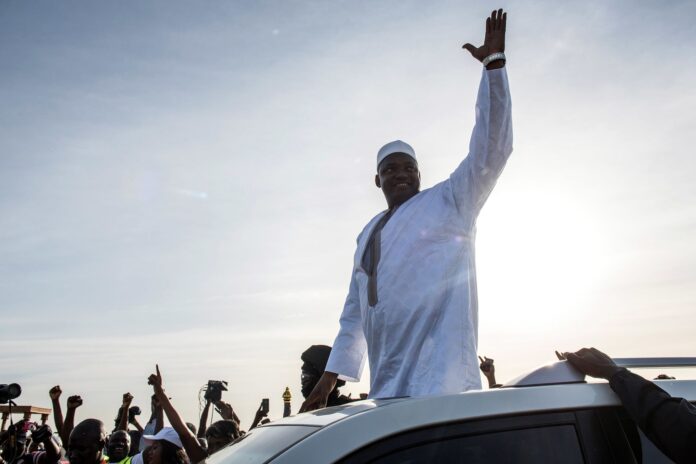By: Mama A. Touray
Following widespread criticism of the “Meet the People’s Tour” and accusations that the tour has been politicized, both the Minister of Information and Broadcasting Services, Dr. Ismaila Ceesay, and the Government Spokesperson and Diaspora Adviser, Ebrima G. Sankareh, have debunked the allegation that President Barrow is politicizing the tour.
Ceesay and Sankareh jointly appeared on Coffee Time with Peter Gomez on West Coast Radio on November 19, 2024.
Dr. Ismaila Ceesay, who has been a strong critic of the “Meet the People’s Tour,” stated, “I’m not sure the ‘Meet the People’s Tour’ is politicized. Getting to understand it more deeply gave me a very different perspective on what it is about.”
He added that when you are with the president in rural areas, you realize that what happens behind the camera is more significant and detailed than what is seen on camera.
“He is a man who has patience. He will sit with the people from morning to night, listening to them. What he can solve, he solves, and what he can’t solve, he looks for ways to solve. The tour is an opportunity for him to interact with the people and understand what they are going through,” he said.
Meanwhile, Ebrima G. Sankareh, when asked about the relevance of the “Meet the People’s Tour” in the technological era, where the president can send any information without going from community to community, responded, “There is a reason the lawmakers decided that the president should visit constituencies. It makes a lot of sense for the person elected by the people to interface with them from village to village, community to community, annually, to hear them directly, instead of relying on chiefs, Alkalos, and governors as intermediaries.”
On the criticism that the tour puts pressure on the people to give animals or their farm products to the president, Sankareh argued, “Conversely, I argue that it also puts pressure on the president and his government to see the realities on the ground, instead of receiving communiqués from governors.”
He added that it is also pressure for the president to sit with the people who bear the brunt of daily hardships, narrating what they go through.
He argued further, “It also puts formidable pressure on the president to realize that there are people in The Gambia who do not have clean drinking water, have to walk to school, and do not have access to transportation. There are still people in The Gambia who do not have paved roads, and that is a fact of life. There are people who struggle to manage two square meals a day.”
He concluded that the president coming face to face with the people puts pressure on him (Barrow) to double his efforts, work harder, and aim higher.




